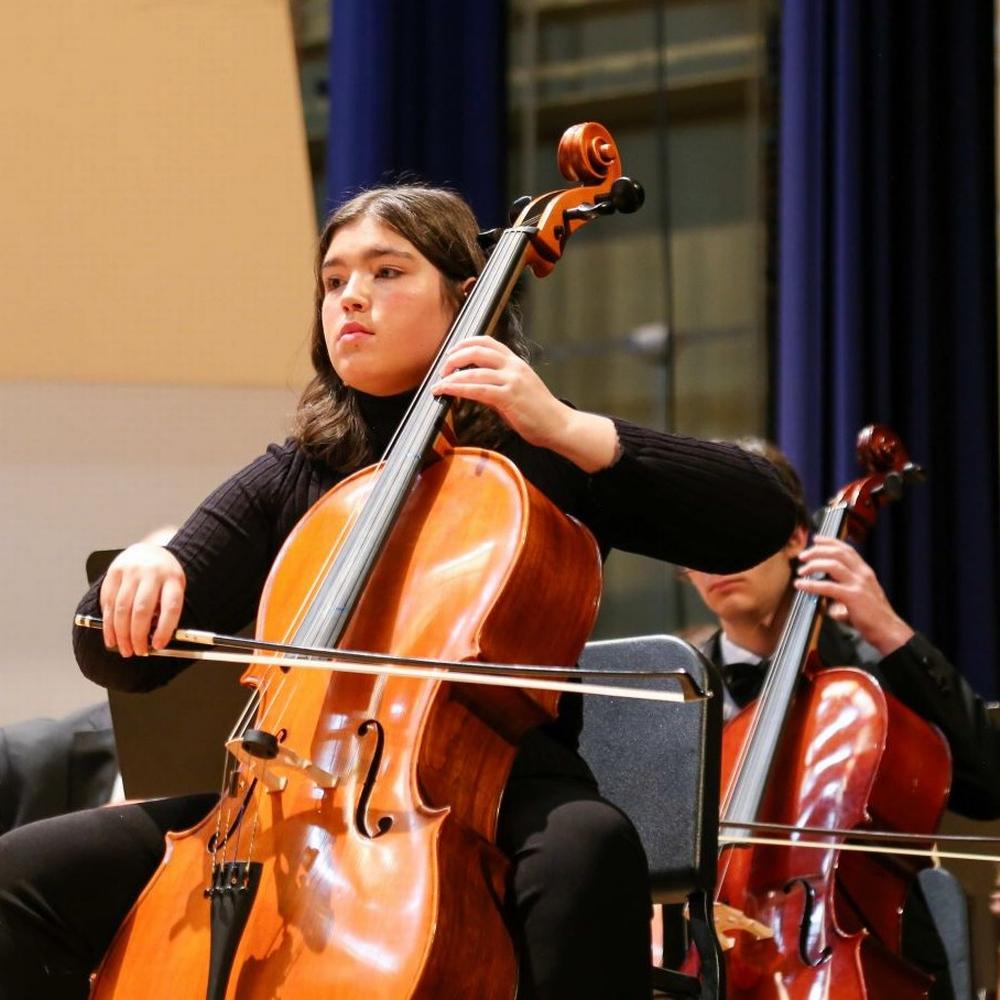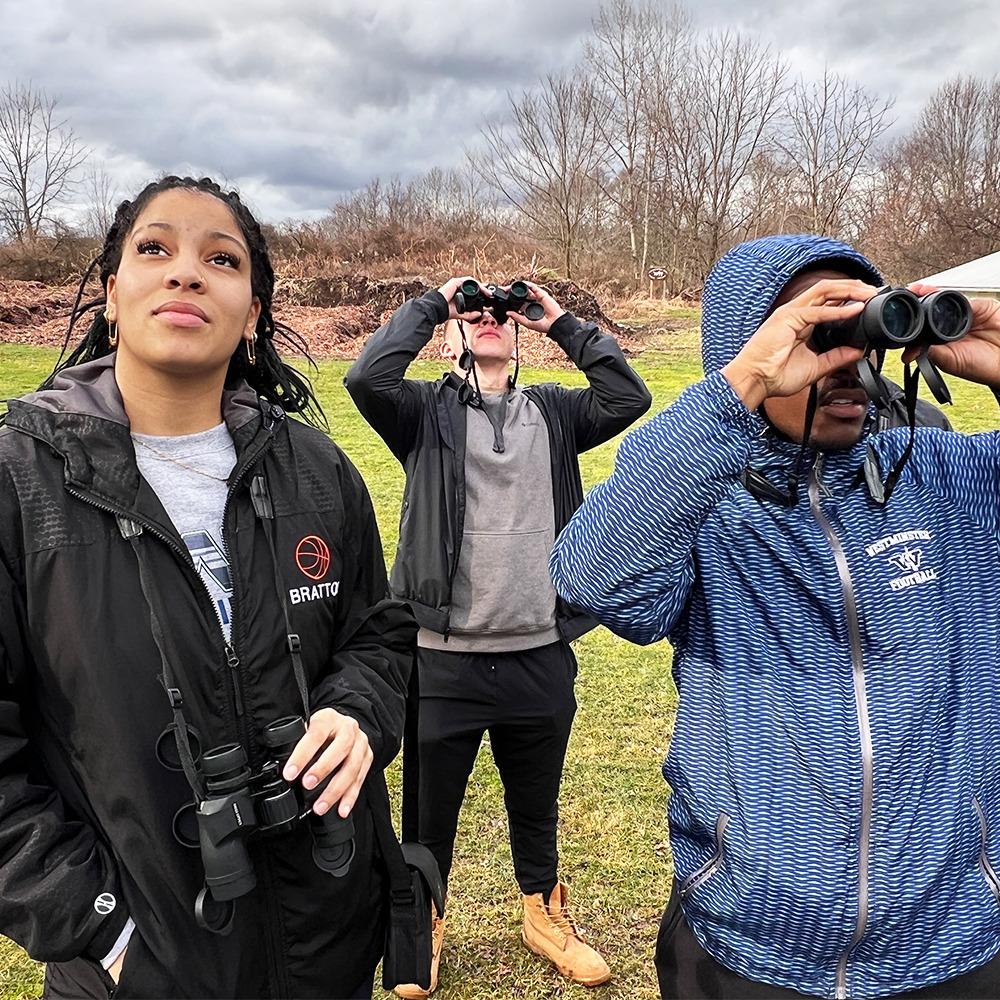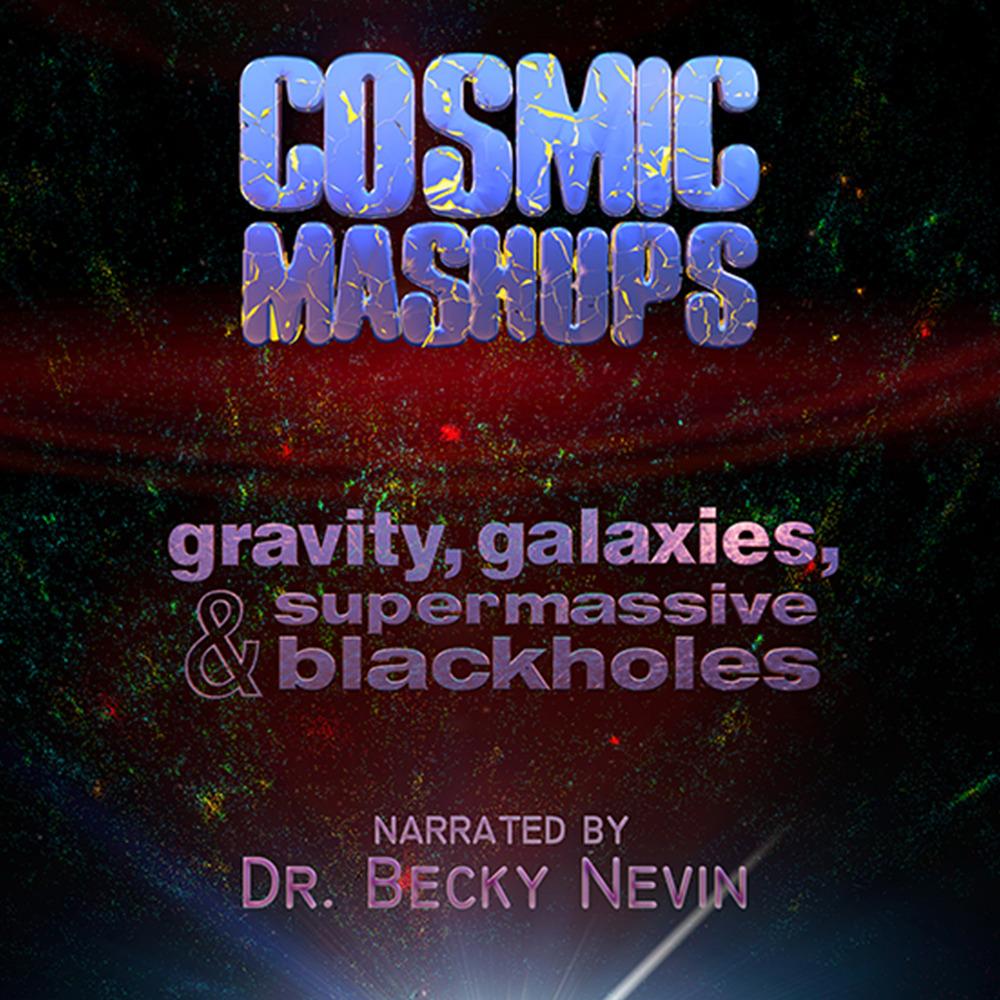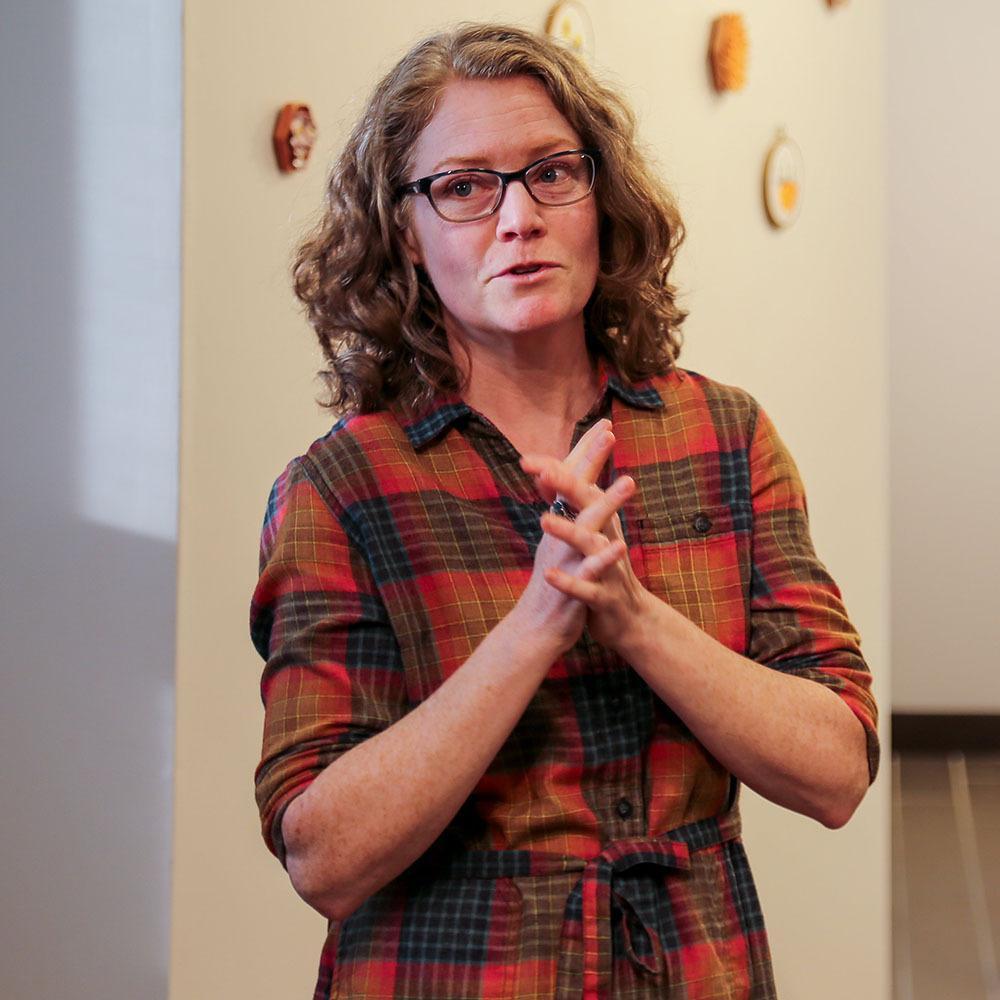Westminster’s School of Education: Building Tomorrow’s Teachers
Posted on Thursday, July 13, 2023
This story appears in the June 2023 edition of Westminster Magazine, Westminster College’s alumni magazine.
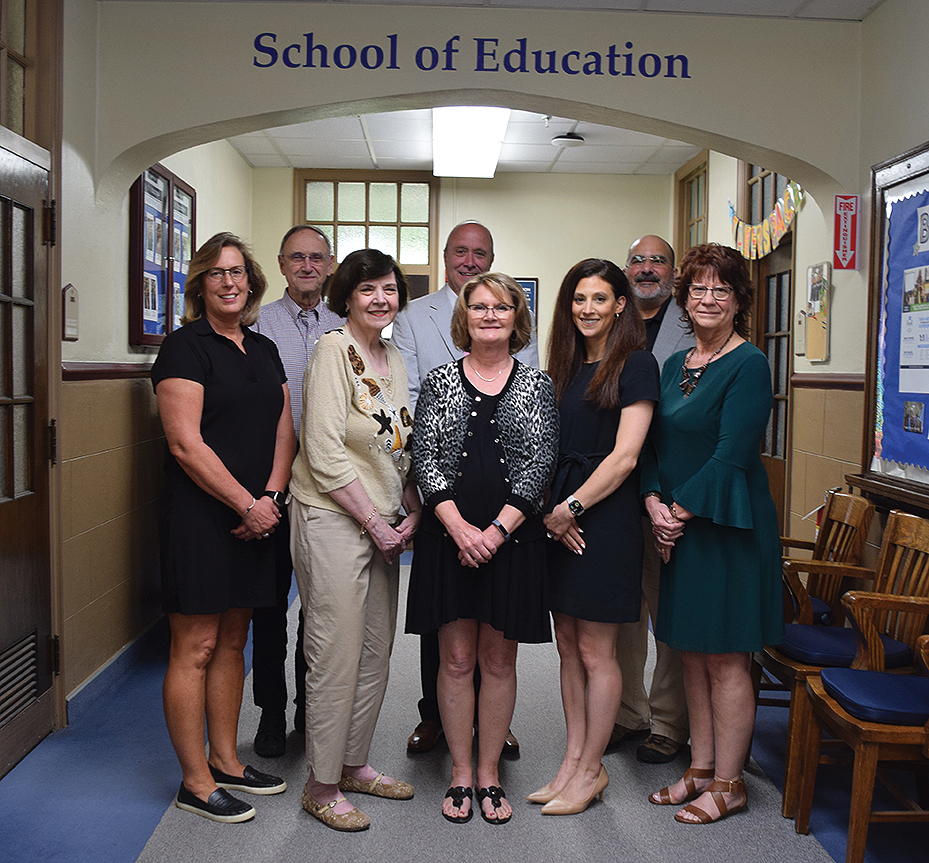 When Westminster was established more than 170 years ago, the educational winds were shifting. In the wake of the Industrial Revolution, the traditional classical college curriculum was no longer enough for a changing America. A new age was dawning. A rising middle class—women included—wanted a college education. Rather than embarking on the classical standards of Latin, ancient Greek and the language of mathematics, some were in search of a broader utilitarian curriculum. Westminster’s founders seized a unique opportunity in 1852: to build a college for men and women that upheld the traditions of a classical college education while also offering practical preparatory courses.
When Westminster was established more than 170 years ago, the educational winds were shifting. In the wake of the Industrial Revolution, the traditional classical college curriculum was no longer enough for a changing America. A new age was dawning. A rising middle class—women included—wanted a college education. Rather than embarking on the classical standards of Latin, ancient Greek and the language of mathematics, some were in search of a broader utilitarian curriculum. Westminster’s founders seized a unique opportunity in 1852: to build a college for men and women that upheld the traditions of a classical college education while also offering practical preparatory courses.
Not only would Westminster—the second institution of higher learning between the Ohio River and Lake Erie—prepare future ministers, physicians and lawyers, it would also train students for professions that didn’t require the classical approach, most notably teaching. From her very inception, Mother Fair has embraced the privilege of educating the teachers of tomorrow— and she hasn’t stopped since.
Setting Westminster Apart
Generations of educators have passed through Westminster’s halls since her founding more than a century and a half ago.
While pedagogical methods and approaches have evolved, what hasn’t changed is Westminster’s commitment to—and reputation for—training quality and effective educators.
Students are introduced to that commitment early on. Westminster’s strong emphasis on early field experiences places students in a variety of educational settings during their first year and gives them significant time in real classrooms. From school districts in rural settings to community-based childcare programs in more urban environments, the observation phase lets students test the waters of the teaching pool and gives them a broad context.
“We provide so much from the very beginning. Our students come to Westminster for this major, so we aim to get them in the classroom as soon as possible,” said Jane Dean, coordinator of field experiences for the School of Education.
“Westminster really helped prepare me for a real teaching job,” said senior Abbegail Froehlich ’23. “I believe actually doing ‘the thing’— teaching—helps you more than anything. They allowed us to have experiences in the classrooms by the second half of our first semester of college.
“The opportunity to get real-world field placements starting very early in my college years was so beneficial in focusing my career goals,” says Lindsey Scialabba ’23, a senior child and family studies major.
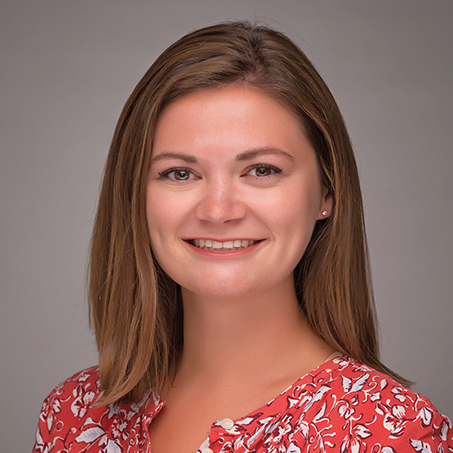 Ariana Carr, a 2015 graduate agrees.
Ariana Carr, a 2015 graduate agrees.
“When I think back to my time at Westminster in the education department, I remember the hands-on learning in classroom settings starting my freshman year,” says Carr, who today is an early years teacher at Seven Peaks School in Bend, Ore.
"Whether it was practicum, simple observation, or student teaching, the education department encouraged learning that melded the pedagogy with the practical element,” she says.
Dr. René Picó, chair of the School of Education, says in addition to early classroom exposure, teacher candidates get a unique edge on the competition through the Teacher and Learning Laboratories (TLL) phase— Westminster’s approach to educational blocks.
By experiencing a variety of settings and grade levels—whether they are in the dual certification program for Special Education K-12 and Early Childhood Education PreK-4 or the Secondary Education minor program—students get more than a glimpse of what their futures might hold. They also get hours of real-world classroom experience in preparation for the rigorous teacher candidacy phase.
“The Teaching and Learning Labs are the clinical philosophy to the entire process of preparing the future generations of teachers,” says Picó. Students rotate through a series of intense theory and methods courses coupled with 140-150 hours of practicum experiences.
“So many times prior to placement, students feel they only want to teach a specific level. But after moving through different levels, they may discover a preference for a different level,” said Dean.
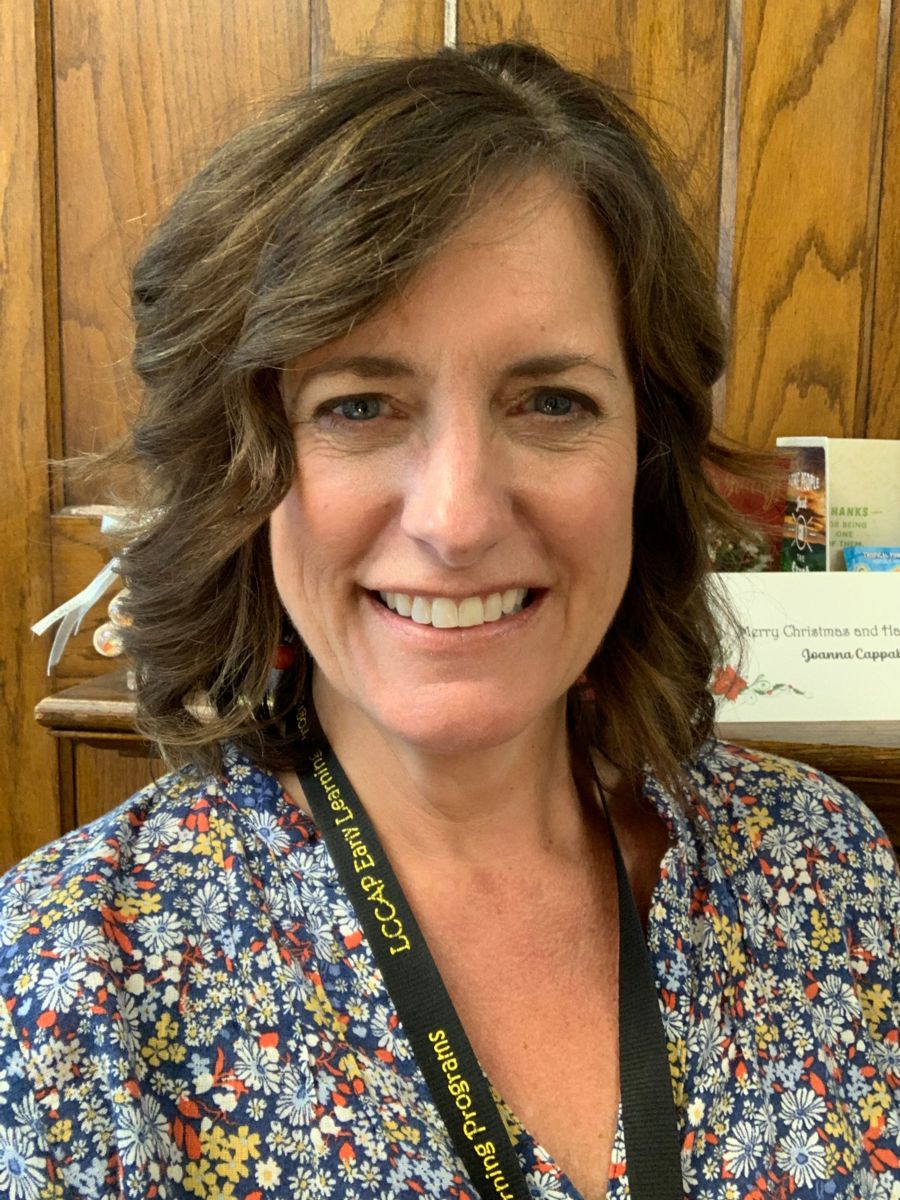 Additionally, says Nancy Stewart Welker ’93, field experiences will help students gain firsthand knowledge of the unique needs and experiences of students from different socio-economic backgrounds.
Additionally, says Nancy Stewart Welker ’93, field experiences will help students gain firsthand knowledge of the unique needs and experiences of students from different socio-economic backgrounds.
“Westminster ensures that students learn that not all children attend school in middle income communities,” says Welker, director of health and education services for the Lawrence County Community Action Partnership, which provides early learning programs to about 600 children in the county.
“Children and families from all social-economic communities may face challenges that impede a child’s ability to learn or get in the way with a family’s ability to positively engage with their child’s learning,” Welker says. “Westminster education students are provided practical opportunities which immerse them into a variety of learning environments for this purpose.”
Dr. Gwendolyn Deger, assistant professor specializing in special education, says students are able to see how special education varies by practicum experiences working with students with high-incidence and lowincidence disabilities.
“We try to give them those different experiences so that they can find their niche,” says Deger. “Even if they decide that special ed is not for them, they have the experience and the know-how to be able to service a student within their general education classroom regardless of ability.”
The TLL experience is also an important segment of the Secondary Education program, especially when woven with the students’ major content, says Dr. Jenna Copper, program coordinator and assistant professor.
“This is one of the areas where I feel our students have a leg up in the Secondary Education program. They already have such excellent content knowledge because they are majoring in a specific subject area,” she says. Incorporating the Teaching and Learning Labs creates a complete package.
“I hear overwhelmingly from cooperating teachers in the field that Westminster College’s education students are so well prepared because they have such great content knowledge, whereas other students are trying to catch up,” Copper says.
Educating Future Teachers
Building tomorrow’s teachers requires committed faculty, and Westminster’s School of Education is filled with accomplished educators who have walked the walk in all grade levels and abilities among public and private schools and are eager to share their approaches with prospective teachers.
“We have all been practicing teachers. We’ve all been in the trenches,” says Dean, who spent 36 years in public education.
Picó spent several years teaching English as a Second Language (ESL), science and mathematics in both the U.S. and Puerto Rico.
New to the faculty this year but carrying a wealth of knowledge is Copper, who taught high school English for 13 years in the Wilmington Area School District. The School of Education also welcomes many retired educators to its adjunct pool, including Todd Cole ’83, who spent 34 years teaching elementary school in the Laurel School District; Cynthia Clarke ’78, with 36 years teaching West Middlesex sixth graders; Mary Ann Grubic, who worked in special education at Wilmington for 35 years; and James Bleil, a retired educator who taught middle school social studies in the Mars Area School District for 36 years.
The faculty’s varied experiences and pedagogies mean rich learning opportunities for students.
“Our different perspectives and methods we use introduce students to an eclectic buffet of opportunities to use in the field,” says Picó. “Each one of our expertise allows them to put a different tool into their teaching toolkit for them to use in their future classrooms.”
“We have this eclectic mix of really different teaching pedagogies that flow nicely into this model of what excellent teachers look like,” says Deger, who spent seven years as a learning support teacher for high school and elementary students.
But teachers-in-training are doing more than just observing the pedagogies of their professors. They’re also learning how to be emotionally intelligent and empathetic educators.
“We are trying to build teachers who are strong, confident and empathetic,” said Deger. “If you don’t have empathy, it’s going to be a lot harder.”
“A good educator knows that relationships matter far more than teaching content,” said Carr. “A good educator builds, establishes and maintains relationships with their students, families and community. Now more than ever, children need 21st century skills—creativity, curiosity, and above all, empathy.”
Regardless of their area—early childhood, special education, secondary education or child and family studies—Picó said all of the members of the Westminster faculty subscribe to a very simple acronym for their calling: TEACH—Training Educators in the Art of Content and Heart.
“That really tells it all, how we as educators teach the art of teaching,” Picó said.
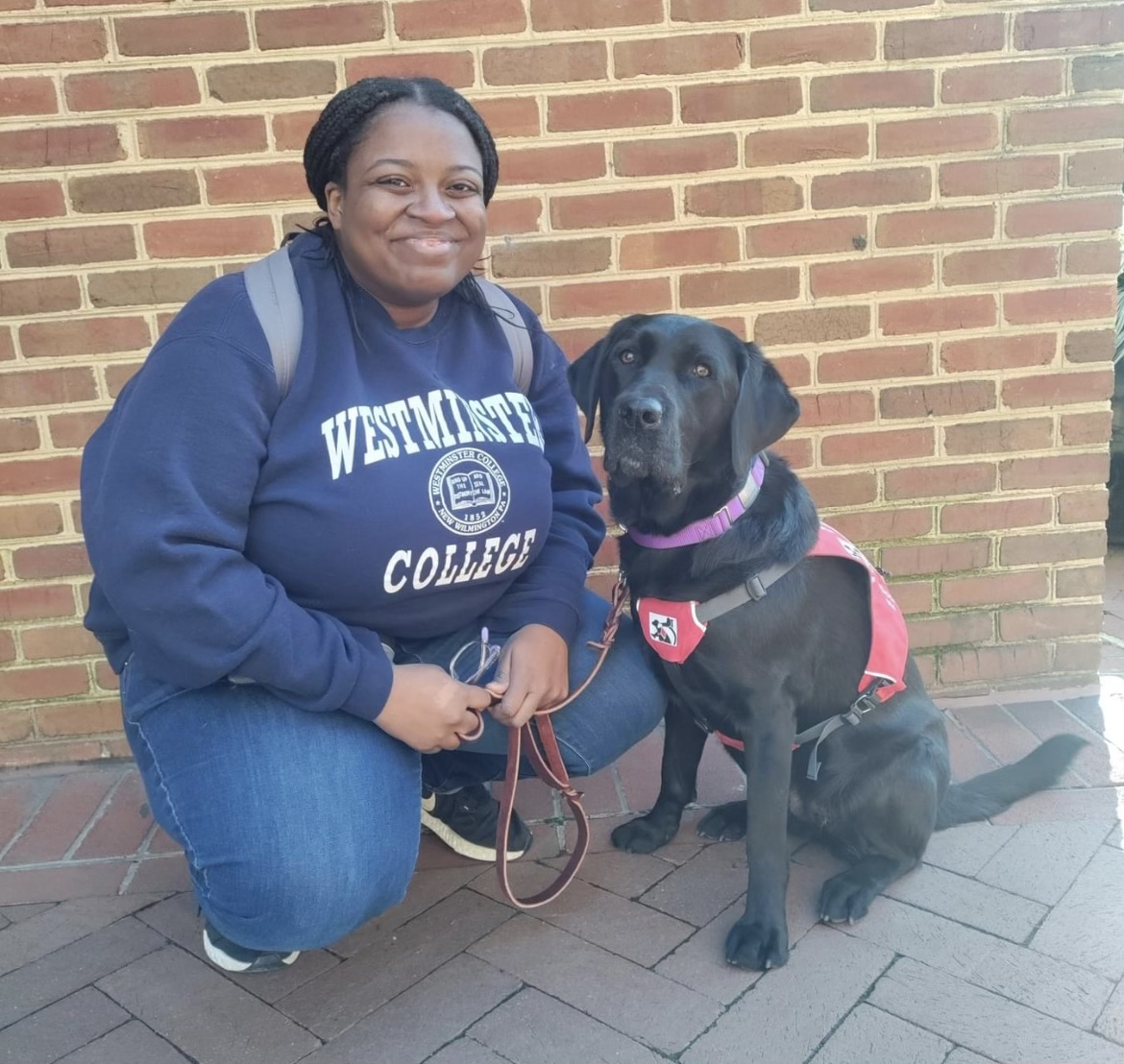 “Westminster really helped me understand that teaching is really an art form,” said Daliswa “Didi” Kumalo ’20, an elementary school teacher in the Fairfax County Public Schools in Northern Virginia. “When you teach, lead with compassion. It’s not all about test scores, it’s about the students. It’s about getting to know who they are and finding ways to fill in those gaps and figuring out how you can part of their journey.”
“Westminster really helped me understand that teaching is really an art form,” said Daliswa “Didi” Kumalo ’20, an elementary school teacher in the Fairfax County Public Schools in Northern Virginia. “When you teach, lead with compassion. It’s not all about test scores, it’s about the students. It’s about getting to know who they are and finding ways to fill in those gaps and figuring out how you can part of their journey.”
Teaching From The Heart
The summer before her sophomore year, Kumalo was working at a camp for children and adults with disabilities. That’s when it struck her: her heart was telling her to become a teacher.
“I realized that I enjoyed helping people meet their goals and I loved watching people find success,” she said. “I called the registrar’s office immediately and said, ‘I need to switch my major.’ I knew at that point that working with this population in any capacity was what I needed to do all day for the rest of my life.”
“You need the passion. You have to have the passion—and that dream,” said Dean, adding that she always poses the same question to prospective education students.
“‘What’s your dream?’ I ask them. I want to hear that they love working with kids, even on the hard days,” she said. “They have to light up on the days that are going to be tough—and there are always those days,” she says.
Senior Tyler Dickson ’23 knows what drives his passion and keeps him motivated to be a successful teacher.
“It’s the kids. Plain and simple. If you ask a teacher why they teach and the say, ‘I love having summers off,’ then they are probably not in the right profession,” he said.
Conversely, considering a different profession may steer you back to your true passion—just ask senior Stephen Adametz ’23.
“I’ve wanted to be a teacher since I was in elementary school. But when I first came to college, some people dissuaded me from teaching, so I came in as an English major with the intention of going to law school. It only took me a semester to come back to teaching, as I realized that was truly what I wanted to do,” says Adametz, an English/secondary education major.
During her time at Westminster, Welker learned how powerful an educator’s role is.
“Understanding that we have an opportunity to positively impact children and families through everyday engagement, reinforcement, support and nurturing—what an amazing opportunity to make a difference on others, young and old.”
Read Westminster Magazine online at Issuu here.
More Stories
